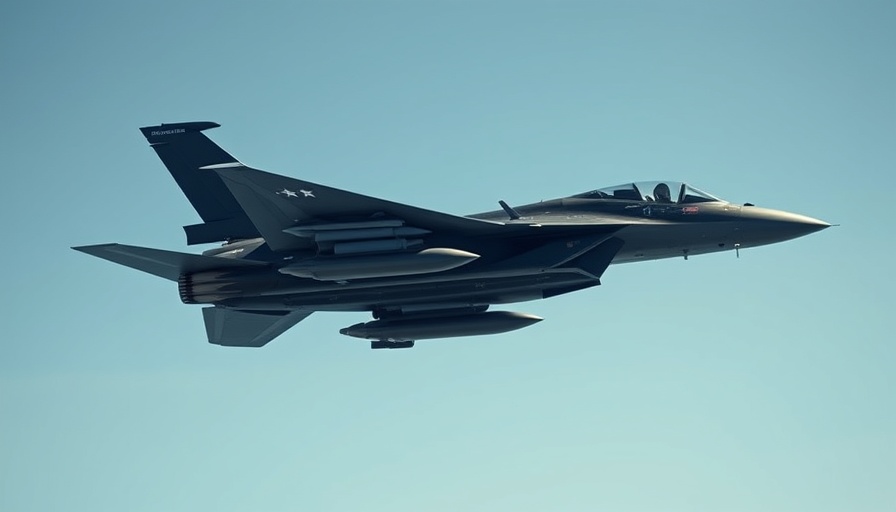
Germany's Strategic Shift: Sending Taurus Missiles to Ukraine
In a notable shift in military support, Germany has expressed willingness to send Taurus cruise missiles to Ukraine. This development comes amidst escalating tensions in the region, further tightening the bonds between Western allies and Ukraine during its ongoing conflict with Russia. German leader Friedrich Merz's statement reflects a growing sentiment in Europe to bolster Ukraine’s defense capabilities.
The Implications of Taurus Missile Deployment
The Taurus missile system, capable of striking targets up to 500 kilometers away, could provide Ukraine with a crucial advantage on the battlefield. As reported, Merz emphasized the importance of Ukraine receiving advanced weaponry to deter further aggression. Such a step signifies not only military support but also a shift in Germany’s post-war defense policies, moving away from historical reluctance to engage militarily.
Understanding Germany's Motivations
Historically, Germany has been cautious about military exports, particularly to conflict zones. However, the ongoing situation in Ukraine has prompted a reevaluation of its stance. The government believes that robust support for Ukraine could prevent broader regional instability and safeguard European security interests. Observers note that this strategic pivot also aims to strengthen Germany’s leadership role within NATO and the EU.
The Role of Allies in Arms Support
Germany’s decision is seen in the context of wider Western military support for Ukraine, including arms from the U.S., the U.K., and other European nations. Coordinated efforts among allies underlie the belief that sustained military aid is essential to Ukraine's resilience. Moreover, this logistical support indicates an upcoming influence on geopolitical strategies, possibly altering the course of negotiations and military engagements in the region.
Future Predictions: What This Means for Europe
This missile shipment could set a precedent for future arms transfers, potentially encouraging other nations to expedite their military aid to Ukraine. Analysts predict that as Ukraine strengthens its defense, Russia might respond with escalated military actions, leading to a more intense confrontation. This cycle raises critical questions about the long-term strategy for maintaining peace and stability across Europe.
The Reactions and Counterarguments
While many applaud Germany’s decision as necessary for Ukraine's self-defense, critiques arise regarding the risk of escalating tensions further. Detractors argue that increasing military aid could provoke Russia into a more aggressive posture, potentially dragging Europe into a protracted conflict. Navigating these varied perspectives remains essential for policymakers as they consider the broader implications of military engagement.
The Intersection with Economic Implications
The military support for Ukraine is inherently tied to economic security in Europe. Increased military engagements often lead to heightened economic costs, affecting civilian sectors and businesses in nations engaged in supporting military interventions. Additionally, the scramble for resources and economic adjustments in the wake of military spending calls for monitoring to ensure that local economies, especially in regions like the Bay Area, adapt smoothly during these turbulent times.
Final Thoughts
The potential deployment of Taurus missiles marks a significant moment in European defense strategy and cooperation with Ukraine. As tensions continue to mount, the importance of unified responses from allies can’t be overstated. The implications for the future of security in Europe and the global market trends will be closely watched in the coming months.
 Add Row
Add Row  Add
Add 



Write A Comment